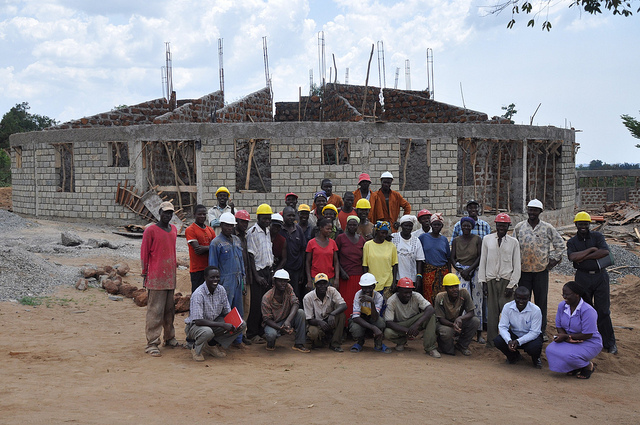The Tiba Foundation is a San Francisco-based, non-profit organization that addresses rural health issues in Kenya.
Since communities cannot thrive without quality medical care, the Tiba Foundation aims to provide healthcare solutions to people in remote areas of the country. By creating a viable community health system, they enable people to work productively, and provide for their families – thereby helping them to succeed, instead of spending large amounts of time sick, incapacitated, and unproductive.
They partner with the Matibabu Foundation in Kenya which performs the work on the ground – building facilities, providing medical care, and managing the administration. And in addition to being loved by the local community, the organization also has the support Kenyan government.
Then And Now
It all began in 2004, founded by Dr Gail Wagner and a small group of volunteer physicians and nurses. The group traveled to Ugenya District in Kenya, only to find no roads, no power grid, and no medical service.
The organization that Tiba supports, the Matibabu Foundation, is thriving, and has even received two prestigious grants from the US government and Columbia University. Things have certainly changed since those early days when the first volunteer group arrived in the area to find no medicines, no medical supplies, and no diagnostic capability. Today, Tiba Foundation supports the services of two out-patient clinics, and construction of their first in-patient hospital is well underway.
On the ground in Kenya, the Matibabu Foundation provides a valuable community presence for all rural health initiatives within the community. They manage a network of over 500 community health workers, training them to diagnose basic medical conditions. Additionally, through coordination with clinical officers, they arrange transportation and critical care provision for patients. Training of community members in preventative health matters such as provision of clean water, use of mosquito bed nets, and HIV education is another of their important roles.
Tiba and Matibabu work together, along with Kenya’s Ministry of Health, to ensure that the Matibabu Clinic facilities are well supplied, representing some of the best stocked clinics in rural Africa. Medical diagnosis and HIV testing are rapid and affordable, and the medicines needed for diseases such as tuberculosis and malaria are available at manageable prices. Matibabu’s onsite laboratory has gained a reputation as a center of diagnostic excellence and is relied upon by a number of regional facilities.
Closing In On The Distance
Transportation is a challenge in remote areas of Kenya, and it is not unusual for people to walk many miles to receive medical care. Consequently people die every day, unable to cover these large distances. Typically only the wealthy people have cars. Few people own a motorcycle, and even bicycles are a rare possession. This summer the Tiba Foundation launched a program to supply bicycles to rural healthcare workers in one of the poorest regions of Kenya, enabling them to visit at least twice the number of families per week as they can see on foot. This concept is simple and relatively inexpensive, yet life-saving.
The new hospital will also ease the situation for many people too. In addition to providing a clean, safe environment for healthcare, it will reduce the amount of travel required by many people to obtain medical attention.
Sick people are unable to work. Economic margins in this region are slim. Consequently, accessible medical care not only saves lives, but helps to improve economic productivity and independence. Since their inception, Tiba’s healthcare investments have helped to increase primary school graduation rates, as well as making tens of thousands of people healthier and more productive in life.
The combination of the local health programs Tiba supports and Tiba’s medical volunteers now positively impacts over 100,000 lives annually. In describing the growing project, James Schaffer, one of Tiba’s Executive Directors says: “We’re passionate about building community health care in rural Kenya. Thanks to our partnership with Matibabu Foundation, and the support of our donors, our vision of quality, accessible care in this underserved area is becoming a reality.”
Can You Help Tiba?
Please spread the word about this wonderful organization however you can. Join them on Facebook and Twitter.
And if you think you can help in any way, please read more about volunteering for the Tiba Foundation.


Follow Me!